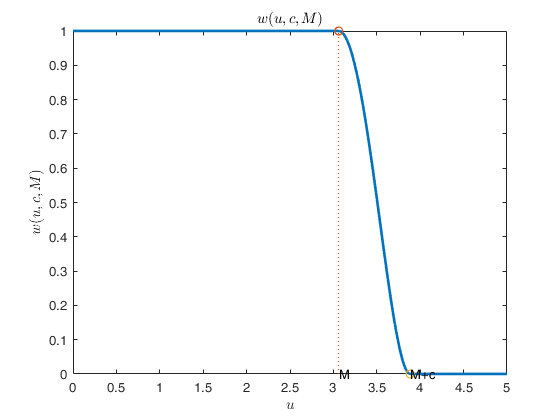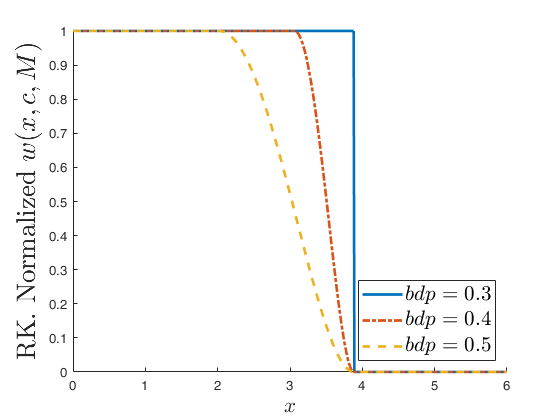RKwei
RKwei computes weight function psi(u)/u for Rocke (translated Tukey's) biweight
Syntax
weiRK=RKwei(u,c, M)example
Examples
Related Examples
Input Arguments
Output Arguments
More About
References
Maronna, R.A., Martin D. and Yohai V.J. (2006), "Robust Statistics, Theory and Methods", Wiley, New York.
Rocke D.M. (1996), Robustness properties of S-estimators of multivariate location and shape in high dimension, "The Annals of Statistics", Vol. 24, pp. 1327-1345.
 Plot of wei function.
Plot of wei function.
